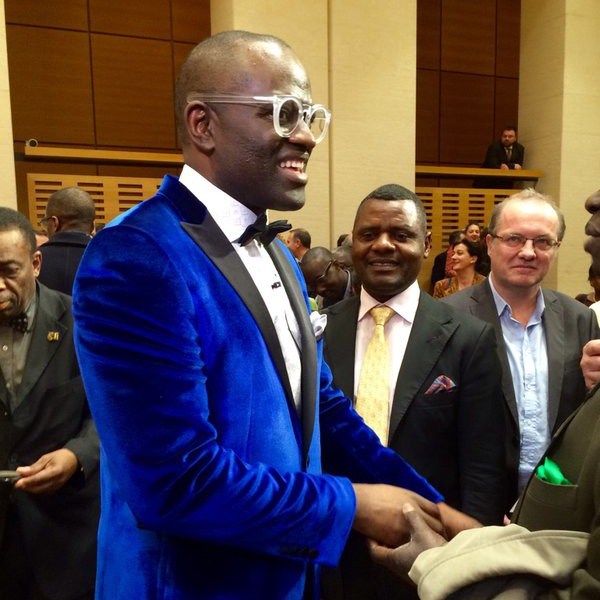
Alain Mabanckou, the biggest name in Francophone African literature, has turned down an invitation from France’s president Emmanuel Macron to join a Francophone project, reports QZ. The project, which is aimed at promoting the French language worldwide, had been conceived by Macron with advice from some thinkers from Francophone Africa, and was highlighted in his speech in Ouagadougou, Burkina Faso in November 2017. On being asked to take part in it, Mabanckou, who is a professor of literature at the University of California, Los Angeles (UCLA), said no, and then published an open letter to the president in the French magazine L’Obs.
In his letter, he made it clear how the French language is not under threat, how La Francophonie—the 57-member, Paris-based group similar to the Commonwealth—”and other initiatives predicated on shared French language serve France’s political interests and those of African repressive elites.”
In a recent interview with QZ‘s Siddharta Mitter, the 51-year-old, whose 11th novel Black Moses was longlisted for the 2017 Man Booker International Prize and a 2018 PEN America Award, stated further that Macron should “take seriously the demands of young Africans, who do not want the institutions of Francophonie to serve any longer as the dining table where the dictators who hold the continent hostage gather and eat.”
“I think Francophonie operates as a form of colonial control. The organization never challenges African dictators who manipulate constitutions or rig elections to stay in power forever, or until the people overthrow them,” he said. “I think the real issue isn’t the future of the French language, but what to do so that African youth no longer live under these regimes, with no hope for their future. France still welcomes these dictators, and the Francophonie organization never criticizes these systems that date back to our so-called independence. It’s a neo-colonial situation, and it’s time to expose it.”
“The point shouldn’t be to drop names,” he added, when asked about Macron who is known as his admirer. “When it comes to democracy and freedom of expression, he’s [Macron] kept vague—or silent. . . If he wanted to, he could really shake things up. But his actions don’t match his words.”
Dialogue, Mabanckou said, was needed “between Francophone and Anglophone spaces. . . and this extends to Portuguese-speaking and Spanish-speaking Africa.”









COMMENTS -
Reader Interactions